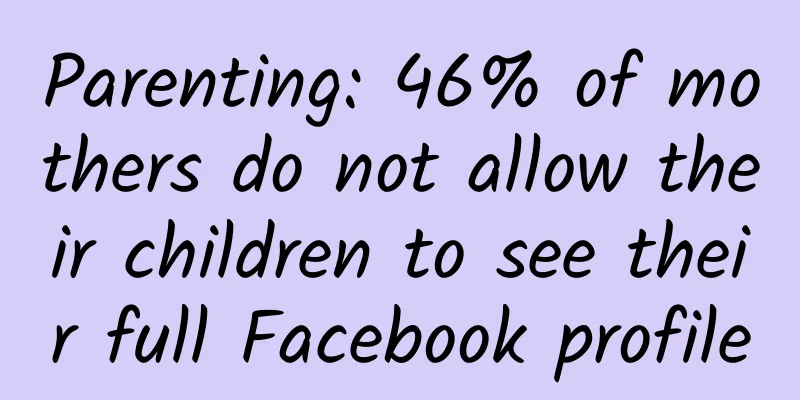What should I do if the ovulation bleeding has not stopped for 10 days?

|
Normal ovulation does not cause any special feeling for women, but some women will experience bleeding during ovulation. Some women are even very distressed. What should they do if the ovulation bleeding has not stopped for 10 days? It is important to distinguish whether ovulation bleeding is a normal physiological phenomenon or caused by some disease. Normal physiological bleeding does not last very long, and the amount of blood is not large, perhaps just a streak of blood. But if the bleeding is too long and too much, you should consider seeking medical attention. Is it normal to bleed for 10 days during ovulation? Although ovulation bleeding is normal, is it normal for bleeding to last for up to 10 days? Many women have this question. The causes of ovulation bleeding can be divided into physiological reasons and pathological reasons. Physiological reasons are normal, but if the reason is pathological, it is certainly abnormal and you need to go to the hospital immediately. 1. Physiological reasons for ovulation bleeding: Before ovulation, estrogen levels reach a peak. During ovulation, the mature follicle ruptures and the egg is released. The estrogen level drops rapidly, causing the endometrium, which has been proliferating due to the nourishment of estrogen, to lose support and cause a small amount of bleeding. Under normal circumstances, this bleeding is extremely short (about 1 to 2 hours), and only red blood cells can be seen in the leucorrhea under a microscope. Vaginal bleeding visible to the naked eye may last for several hours, or 3 to 5 days, but rarely for more than 7 days. In severe cases, it may continue to occur until the next menstrual period. 2. Pathological causes of ovulation bleeding: Some women have very little bleeding, which stops with a few drops, or there is blood mixed in the vagina. Generally, it rarely reaches the amount of menstruation. Bleeding may be accompanied by distension and discomfort, dull pain or obvious pain in one side of the lower abdomen, and may even involve the waist and inner thigh. Symptoms may occur continuously every month or every other month. For some people, they occur for several months each year, while for others, they only experience this phenomenon once in their lifetime. Repeated episodes of ovulation bleeding will affect pregnancy. If this is the case, timely treatment must be received under the guidance of a physician. Therefore, experts remind that if ovulation bleeding lasts for ten days, and if pathological symptoms such as abdominal pain occur, you need to go to the hospital for examination immediately. Treatment measures for prolonged ovulation bleeding 1. Pay attention to your physical health. To increase nutrition, eat more protein-rich foods as well as vegetables and fruits. Combine work and rest in your daily life, avoid heavy physical labor and strenuous exercise, and get enough sleep. 2. Use drugs to stop bleeding. There are two methods of drug hemostasis: one is to make the endometrium fall off completely, which can be done by injecting progesterone; the other is to make the endometrium grow, which can be done by injecting estradiol benzoate. Using some hemostatic drugs, such as Yunnan Baiyao, Anluoxue, Vitamin K, etc., can generally achieve the purpose of hemostasis. 3. Restore ovarian function and regulate menstrual cycle. Generally, drugs such as diethylstilbestrol are taken continuously, 0.5-1 gram per day, for 20 consecutive days. On the last 5 days of medication, 20 mg of progesterone is injected per day. 4. Treatment with traditional Chinese medicine. Traditional Chinese medicine has unique advantages in treating and regulating endocrine function and stopping bleeding, so you should seek treatment from a traditional Chinese medicine practitioner when appropriate. However, it must be done under the guidance of a doctor and you must not take the medicine on your own without authorization, because the effects of endocrine regulating drugs are very complex and improper use can cause serious menstrual disorders. |
<<: I have ovulation period but no leucorrhea
>>: Black discharge during ovulation
Recommend
What are the treatments for tofu dregs yellow leucorrhea
Women's health has always been a concern for ...
Why has the vaginal discharge increased recently?
Vaginal discharge is a secretion of the female va...
Cervical disease treatment
For some cervical diseases, when they first appea...
Can the fissure below the female urethra heal on its own?
The cause of female urethral fissure may be due t...
What are the dangers of masturbation during menstruation?
Most adult women will masturbate without a sexual...
What to do if women often feel dizzy
In daily life, many women will encounter dizzines...
What zodiac sign is most compatible with Aries? What zodiac sign is most compatible with Cancer men?
What zodiac signs are compatible with Aries? What...
Can pregnant women drink pumpkin porridge?
Barley and pumpkin porridge is actually a very de...
When does the belly start to grow during pregnancy?
Some pregnant women cannot be seen as pregnant in...
How to make breasts grow again
The secondary development of breasts is the resul...
Counterpoint: Apple will account for 53% of the US smartphone market in Q3 2024, with shipments down 5% year-on-year
Apple still completely dominates the US smartphon...
20-year-old breast sagging is very serious
For women, breasts are the symbol of our beauty. ...
What causes itching in female pubic hair?
For women, it is important to pay attention to th...
Can I eat jujube during menstruation?
Menstruation is very important to women and shoul...
The effect of women drinking golden sunflower
Golden flower sunflower is a nourishing and healt...









